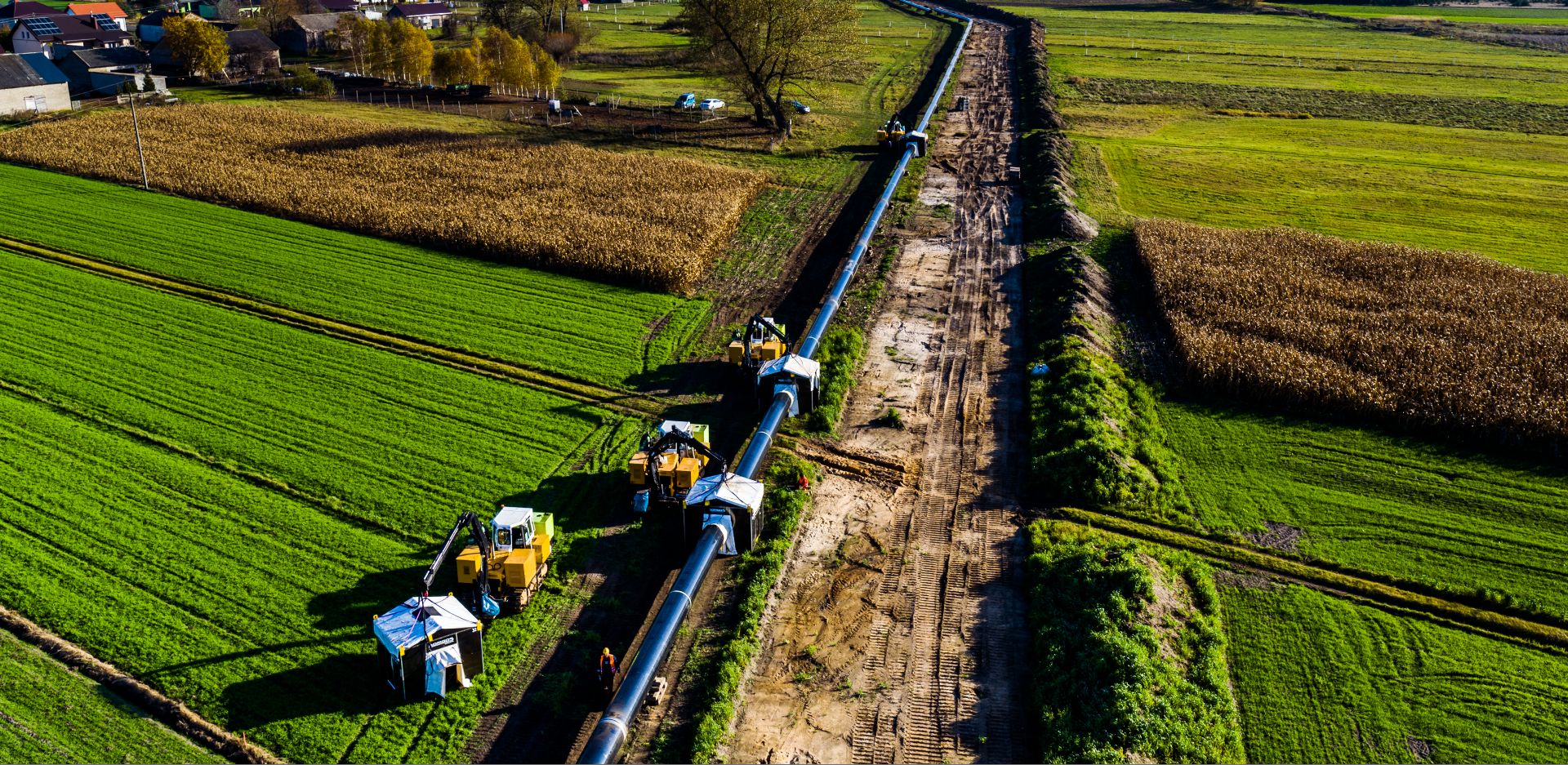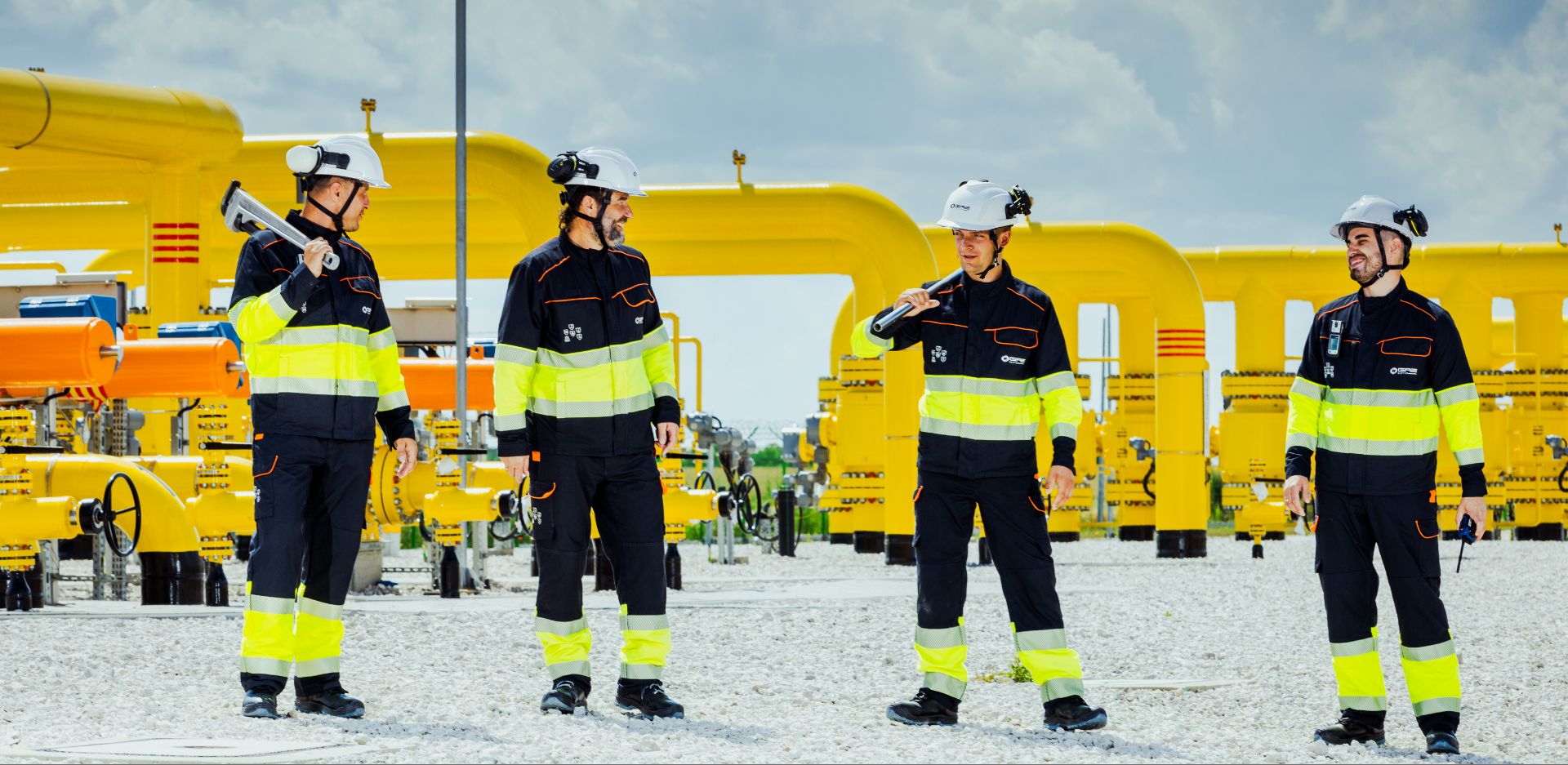Outlook

In the context of dynamic changes in the global energy market and a complex geopolitical environment, the development of GAZ-SYSTEM is a key element of sustainable future for Poland's energy sector. The Company's vision corresponds to the priorities set out in the "Energy Policy for Poland until 2040", focusing on energy transformation and reducing the share of conventional energy in favour of technologies based on renewable energy sources.
-
3-3
-
3-3
In recent years, two events have had the greatest impact on the functioning of the natural gas market in Europe: the COVID-19 pandemic and the war in Ukraine. The pandemic which commenced in 2020 resulted in reduced demand for energy resources, while the outbreak of war in 2022 prompted the search for new destinations for gas imports to Europe. In this dynamically changing geopolitical situation, GAZ-SYSTEM has identified two key trends that will have a significant impact on the gas industry. The first is the accelerating energy transition in Europe, leading to a reduction in demand for natural gas and an increase in electricity generation from renewable sources. The second trend triggers a change in the directions and sources of fuel supply, including a decline in the share of ‘blue fuel’ imports via pipelines outdistanced by the liquefied gas market.
In the countries of Central Europe, following declines in demand for natural gas as a result of the COVID-19 pandemic and the military aggression of the Russian Federation against Ukraine, preceded by price manipulation (lower supplies), a stabilisation of the regional natural gas market can be expected. Under these conditions, an increase in the supply of gaseous fuel to the countries of Central Europe from other directions than Russia is expected considering the need for further diversification of natural gas import sources to the region and the ongoing energy transition process (reduction in the use of coal). The need to develop gas infrastructure and ensure optimal regasification capacity at the Baltic Sea will remain an important element of these activities.
The National Ten-Year Transmission System Development Plan for 2024-2033, which was submitted to the President of the ERO on 31 March 2023, and approved on 8 February 2024, assumes an increase in demand for gas transmission service in the coming decade to a peak of approximately 24 – 28 bcm per year in 2028-2031, depending on the forecast variant.
In the period 2023 – 2045, the main factors having the greatest impact on gas transmission demand will include:
- energy transition associated with the conversion of carbon-intensive fuels to low-carbon electricity and heat producers,
- anti-smog policies to reduce air pollution levels resulting from heat production from low-stack emission sources such as single-family homes and small businesses,
- the level of natural gas prices and their relation to other energy carriers,
- the development and growing share of renewable energy sources in the energy mix,
- the development of the market for alternative gaseous fuels such as biomethane and hydrogen.
According to the NTYDP 2024-2033, the Company faces ambitious investment tasks including:
- continued diversification of supply sources to the National Transmission System,
- bolstering the role of the national system as an intermediary in regional gas transit,
- expansion of internal transmission capacity in the system,
- elimination of remaining bottlenecks.
As a result of its strategic actions, by 2033 the Company plans to expand the NTS by approximately 1,800 km of gas pipelines, which together with the infrastructure built in 2020-2022, will provide a total network expansion by approximately 3,400 km.
At the same time, in its strategy the Company plans to establish a hydrogen transmission and storage system by 2033 and to actively participate in the development of the biomethane market in Poland. GAZ-SYSTEM is directly involved in the development of hydrogen technologies, engaging in the work of numerous organisations and initiatives at national and European level. These are not only research and technical initiatives, but also regulatory and political plans or business ventures.



